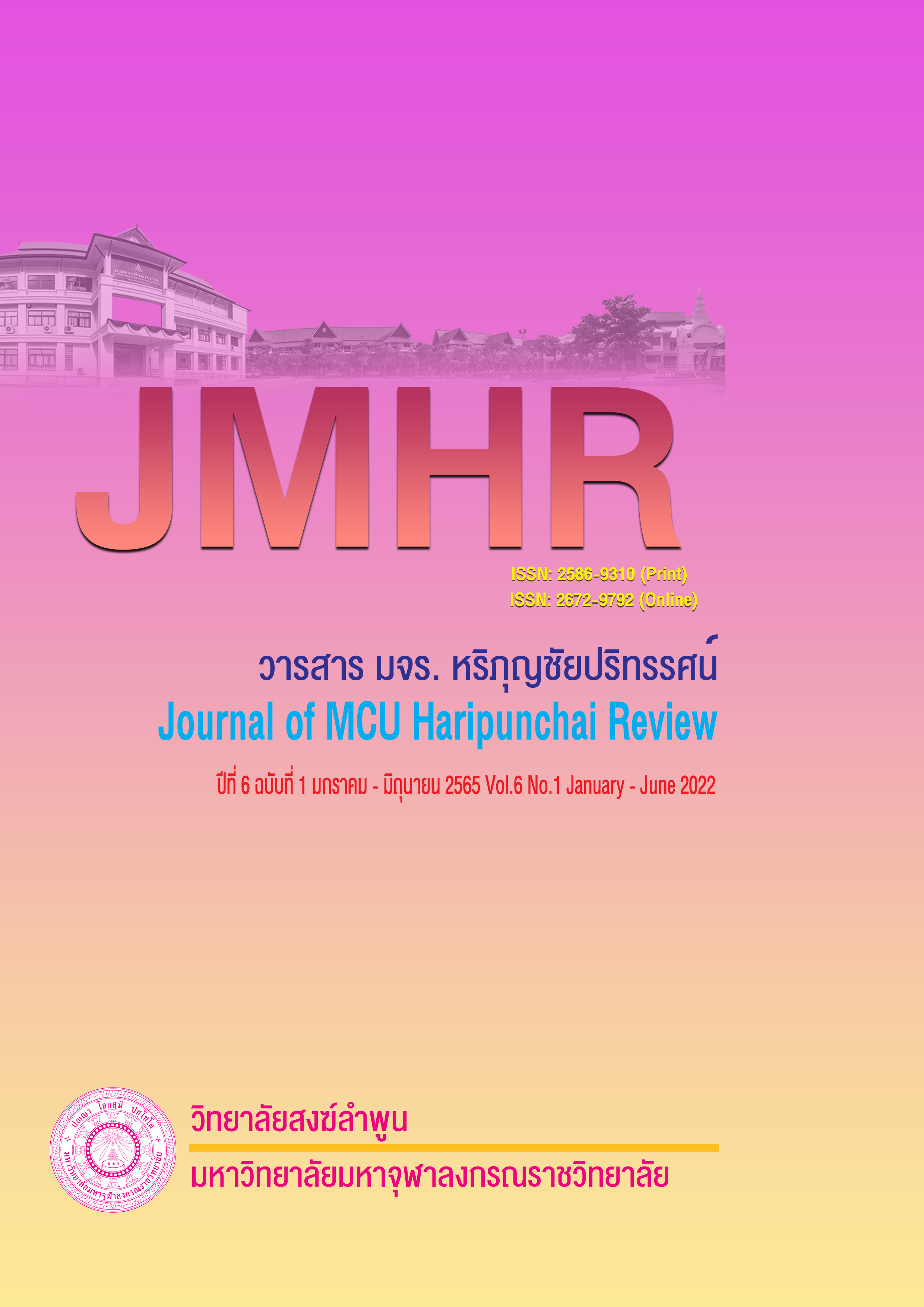The Conjured Construction of Education System: Development of Educational Quality in Thailand in the Era of Globalization
Main Article Content
Abstract
Education is the creation of human processes of knowledge, thinking and social behavior for the advancement of society. For Thailand, the world society has undergone many changes, but the learning system of Thai society has not responded to important development questions like many countries that have a competition to develop their students to be as ready as possible physically, mentally, socially, mentally and intellectually. These make Thai society may need to rethink the dimensions of the new generation of social membership development more in order to progress and be able to compete with developed countries. Techniques for improving the quality of education, especially the issue of rapid global change, known as globalization, consist of: 1. the creation of a model school and curriculum for the development of technological and scientific skills, 2. the creating more educational motivation by guaranteeing quality that focuses on practice rather than theory, 3. the educational management from kindergarten to primary school through government management that does not involve the private sector to reduce social inequality, 4. the decentralization of schools towards community participation or participation in local organizations in the form of committees, and 5. the style adjustment of the role of a regular teacher to become a coach.
Article Details

This work is licensed under a Creative Commons Attribution-NonCommercial-NoDerivatives 4.0 International License.
References
ธเนศ เกษศิลป์ และพระมหาบุญศรี ญาณวุฑฺโฒ (วงค์แก้ว). (2560). การบริหารจัดการภาครัฐแนวใหม่โดยหลักบริหารเชิงพุทธศาสตร์. วารสารบัณฑิตศาสน์ มหาวิทยาลัยมหามกุฏราชวิทยาลัย. ปีที่ 15. ฉบับที่ 2. (กรกฎาคม – ธันวาคม) : 133.
นพดล เหลืองภิรมย์. (2556). แนวคิด การจัดคนให้เหมาะสมกับงานและการแบ่งงานในบริบทที่แตกต่างกัน แนวคิดนี้ยังคงใช้ได้หรือไม่ ในยุคสมัยใหม่และหลังสมัยใหม่. วารสารวิชาการ มทร. สุวรรณภูมิ ฉบับวิทยาศาสตร์และเทคโนโลยี. ปีที่ 1. ฉบับที่ 1. (มกราคม-มิถุนายน) : 83.
บุญเกียรติ การะเวกพันธุ์ และคณะ. (มปป). การบริหารงานภาครัฐแนวใหม่. สถาบันพระปกเกล้า.
พระธรรมโกศาจารย์ (พุทธทาสภิกขุ). (2549). ความว่าง จิตว่าง. กรุงเทพมหานคร : ธรรมสภา.
พระพรหมคุณาภรณ์ (ป.อ.ปยุตฺโต). (2559). พจนานุกรมพุทธศาสตร์ ฉบับประมวลธรรม. พิมพ์ครั้งที่ 34. กรุงเทพมหานคร : มูลนิธิการศึกษาเพื่อสันติภาพ พระธรรมปิฎก (ป. อ. ปยุตฺโต).
พระครูพิสัยปริยัติกิจ (แก่น อคฺควณฺโณ). (2562). พระมหากษัตริย์กับพระพุทธศาสนาในประวัติศาสตร์ เขียนโดย: รองศาสตราจารย์ดนัย ไชยโยธา. บทวิจารณ์หนังสือ. วารสารบัณฑิตศึกษาปริทรรศน์ วิทยาลัยสงฆ์นครสวรรค์. ปีที่ 7. ฉบับที่ 2. (ฉบับวิสาขบูชา) (พฤษภาคม-สิงหาคม) : 216-217.
พงษ์พันธ์ วงศ์หนองเตย. (2556). กลยุทธ์การเผยแผ่พระพุทธศาสนาของพระพุทธเจ้า ตอน 2. [ออนไลน์]. แหล่งข้อมูล : https://celestialstrategist.com/2015/07/31/ asalhaandstrategy2/?fbclid=IwAR3OBz0KEifgytMjGzwzA2vD9dQTNXf5yaDa8Y1qJ-ixfoBEfiT9MKnM-js [21 กันยายน 64].
สำนักนโยบายและแผน. (2559). ความเป็นมาของการพัฒนาคุณภาพการบริหารจัดการภาครัฐ. สำนักงานเลขาธิการสภาผู้แทนราษฎร.
สำนักนโยบายและแผน. (2562). คู่มือเกณฑ์คุณภาพการบริหารจัดการภาครัฐ, กรุงเทพมหานคร : สำนักงานเลขาธิการสภาผู้แทนราษฎร.
สำนักงานคณะกรรมการพัฒนาระบบราชการ (สำนักงาน ก.พ.ร.), (2557). เกณฑ์คุณภาพการบริหารจัดการภาครัฐ พ.ศ. 2558. กรุงเทพมหานคร : บริษัท วิชั่น พริ้นท์แอนด์มีเดีย จำกัด.
______________. (2561). เกณฑ์คุณภาพการบริหารจัดการภาครัฐ พ.ศ.2562. สำนักงานคณะกรรมการพัฒนาระบบราชการ (ก.พ.ร.).
______________. เกณฑ์คุณภาพการบริหารจัดการภาครัฐ พ.ศ. 2562 (Public Sector Management Quality Award). กรุงเทพมหานคร : สำนักงานคณะกรรมการพัฒนาระบบราชการ (ก.พ.ร.).
วิริยา เนตรน้อย และคณะ. (2562). เกณฑ์คุณภาพการบริหารจัดการภาครัฐ พ.ศ. 2562. สำนักงานคณะกรรมการพัฒนาระบบราชการ (ก.พ.ร.).


